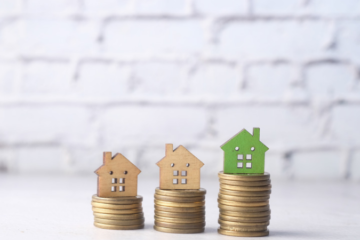For many people, a home is their largest investment – and potential source of capital. Getting a second mortgage, or a home equity loan, can tap that equity for college, home improvements or other pressing financial needs.
Steps:
1. Determine why you need or want a second mortgage. The level of need will determine how you proceed with your lenders since it will define how much you want to borrow against the appreciated value and built-up equity in your home.
2. Be certain you can afford the additional payments involved in a second mortgage by running some hypothetical calculations through a mortgage calculator.
3. Arrange for an appraisal of the home. (A second mortgage, like a first mortgage, will require an appraisal to determine the home’s market value.)
4. Ask your lender about closing costs.
5. Ask if the lender requires private mortgage insurance (P.M.I.) on a second mortgage.
6. Ask your lender to determine if you would be better off to refinance your house rather than to use a second mortgage.
Tips:
Because a home equity loan will rank as a lower or second loan to your original mortgage, expect to pay a higher interest rate than advertised mortgage rates.
A second mortgage is literally a loan on top of your existing mortgage, so it is always advisable to have a solid idea of what your house is worth compared to what you owe on it.
You will only have interest and principal payments on a second mortgage – taxes and insurance are only paid once, in your first mortgage.
Sometimes the holder of your first mortgage will be more accommodating than another lender on a second mortgage, since you are a known customer.
If used wisely, a second mortgage can be used to pay off credit card balances and other high-interest debt.
Lenders will sometimes reduce, or even waive, closing costs on a second mortgage. Be sure to ask.
If you have been in the home long enough and have built up enough equity, you might be better off to refinance your entire house rather than add a second mortgage.
Warnings:
It is generally a good idea to avoid lenders that are willing to lend money in excess of your home’s value. While it may be enticing to be able to get your hands on that much money, remember that you have to pay it back even if the house is never worth that much.


